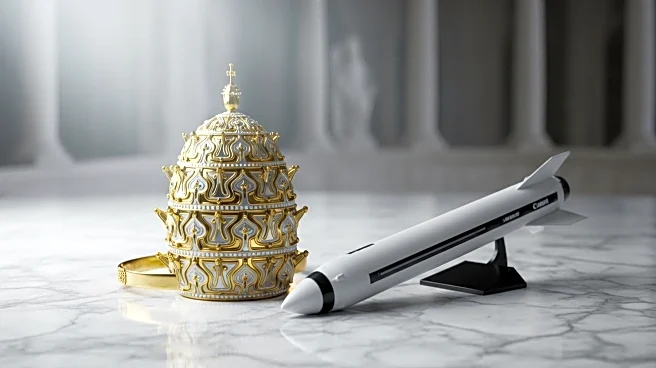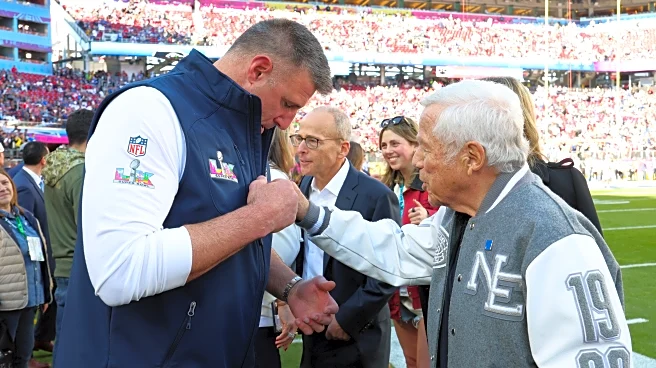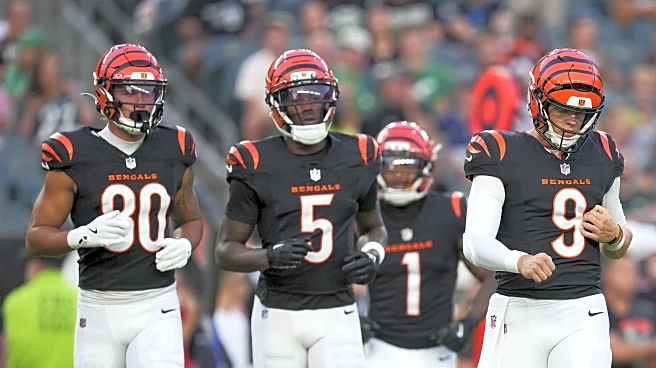What is the story about?
What's Happening?
Pope Leo XIV has expressed strong criticism regarding the growing income disparity between the wealthy and the working class, specifically highlighting Tesla CEO Elon Musk as a prime example of excessive executive compensation. In an interview with Catholic news site Crux, the Pope pointed out that CEOs today earn significantly more compared to their workers than they did 60 years ago. He cited Musk's potential to become the world's first trillionaire as a troubling indicator of societal values. This critique comes as Tesla's board proposes a $1 trillion pay package for Musk, contingent on substantial company growth. The Pope's comments reflect broader concerns about the increasing wealth of billionaires, which has been growing at a rapid pace, while philanthropic efforts by the ultra-rich have not kept pace.
Why It's Important?
The Pope's remarks underscore a growing global concern about income inequality and the concentration of wealth among a small elite. This issue has significant implications for social stability and economic fairness. The disparity between CEO compensation and average worker pay highlights systemic issues within corporate governance and economic policy. As billionaires' wealth continues to grow, the lack of corresponding philanthropic contributions raises ethical questions about the responsibilities of the wealthy. The Pope's critique may influence public discourse and policy discussions around wealth distribution and corporate responsibility.
















